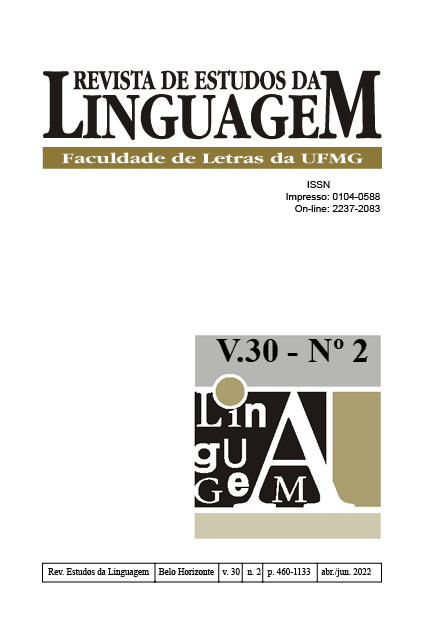Casar x Noivar
uma análise baseada no uso para a construção de ação causada em português brasileiro
DOI:
https://doi.org/10.17851/2237-2083.30.2.932-961Palabras clave:
construção de ação causada, aspectos funcionais, compatibilização verbo-construção, cenário convencionalizadoResumen
Neste artigo, investiga-se a ocorrência de um tipo de construção causativa em português brasileiro, e que pode ser exemplificada pela sentença “O pai casou a filha”. Neste trabalho, essa construção será chamada especificamente de ação-causada2, a fim de capturar tanto as semelhanças quanto as diferenças em relação à construção de ação-causada descrita em Santos, Ciríaco e Souza (2019). Embora restrita a poucos verbos, o significado oracional da construção de ação-causada tem se tornado bastante usual em PB. Uma evidência do aumento de situações de uso reais dessa construção vem de redes sociais, em que expressões que estendem o significado de ação causada para novos contextos, como “casando a irmã”, “formando o amigo”, podem ser facilmente observadas. Com base na abordagem baseada no uso da Gramática de Construções (GOLDBERG, 1995, 2006, 2019), este artigo investiga os aspectos funcionais envolvidos na compatibilização entre verbo e construção de ação causada2 em português brasileiro a partir de uma análise de dados de corpora e de redes sociais. Defende-se que essas construções são restritas por um cenário convencionalizado de investimento pessoal, seja ele financeiro, emocional ou social.





